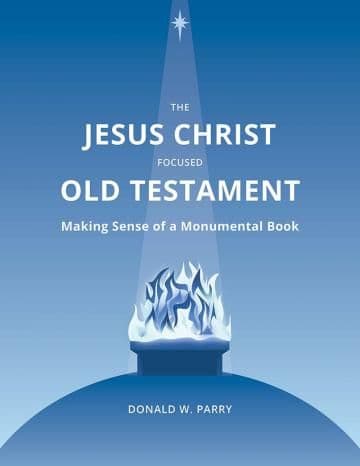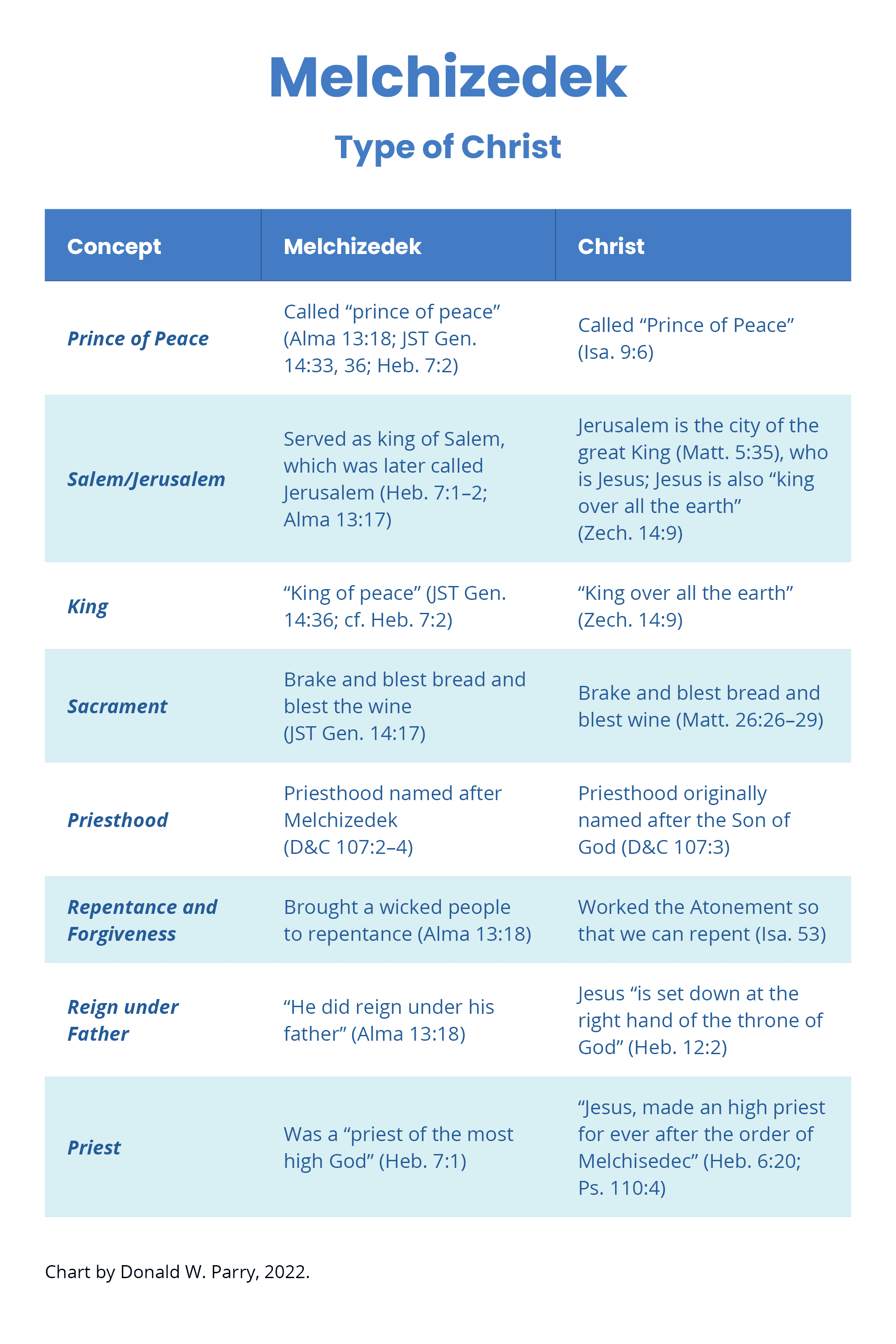Book
56 Chapters

As a prophet, high priest, and king, Melchizedek served as a type and shadow of Jesus Christ, who is the greatest of the prophets, priests, and kings. “After the similitude of Melchisedec,” Paul wrote, “there ariseth another priest” (Heb. 7:15), referring to Jesus Christ. Melchizedek’s faithful priesthood service—when he blessed Abraham, oversaw God’s storehouse, instituted righteousness and peace in Salem, received tithing for the poor (JST Gen. 14:25–40), preached repentance, and “exercised mighty faith” (Alma 13:18)—anticipated Jesus’s perfect priesthood service. Furthermore, Melchizedek’s names and titles looked forward to Christ’s divine mission and kingship. Melchizedek, a Hebrew name, means “King of Righteousness.” He is also called “Prince of Peace,” “King of Salem” (Alma 13:18), “King of Heaven” (JST Gen. 14:36), and “King of Peace” (JST Gen. 14:36; Heb. 7:2).
A revelation to Joseph Smith reveals why the higher priesthood was named after Melchizedek: “Why the first [priesthood] is called the Melchizedek Priesthood is because Melchizedek was such a great high priest. Before his day it was called the Holy Priesthood, after the Order of the Son of God” (D&C 107:2–3). Regarding this passage, Elder Jeffrey R. Holland wrote, “We can only imagine what the Christlike qualities of Melchizedek must have been for his to be the name substituted for ‘the Holy Priesthood, after the Order of the Son of God.’ He surely would have to reflect all the typological strengths expected of any priesthood bearer . . . but undoubtedly would have additional Christlike qualities beyond that.”[1] Following this comment, Elder Holland listed ways in which Melchizedek foreshadowed Jesus Christ.
[1] Holland, Christ and the New Covenant, 175. See also Elder Holland’s list of ways that Melchizedek foreshadowed Jesus Christ, ibid.
Concept | Melchizedek | Christ
|
|---|---|---|
Prince of Peace | Called “prince of peace” (Alma 13:18; JST Gen. 14:33, 36; Heb. 7:2) | Called “Prince of Peace” (Isa. 9:6) |
Salem/Jerusalem | Served as king of Salem, which was later called Jerusalem (Heb. 7:1–2; Alma 13:17) | Jerusalem is the city of the great King (Matt. 5:35), who is Jesus; Jesus is also “king over all the earth” (Zech. 14:9) |
King | “King of peace” (JST Gen. 14:36; cf. Heb. 7:2) | “King over all the earth” (Zech. 14:9) |
Sacrament | Brake and blest bread and blest the wine (JST Gen. 14:17) | Brake and blest bread and blest wine (Matt. 26:26–29) |
Priesthood | Priesthood named after Melchizedek (D&C 107:2–4) | Priesthood originally named after the Son of God (D&C 107:3) |
Repentance and Forgiveness | Brought a wicked people to repentance (Alma 13:18) | Worked the Atonement so that we can repent (Isa. 53) |
Reign under Father
| “He did reign under his father” (Alma 13:18) | Jesus “is set down at the right hand of the throne of God” (Heb. 12:2) |
Priest | Was a “priest of the most high God” (Heb. 7:1) | “Jesus, made an high priest for ever after the order of Melchisedec” (Heb. 6:20; Ps. 110:4) |
Book
56 Chapters

Items in the BMC Archive are made publicly available for non-commercial, private use. Inclusion within the BMC Archive does not imply endorsement. Items do not represent the official views of The Church of Jesus Christ of Latter-day Saints or of Book of Mormon Central.